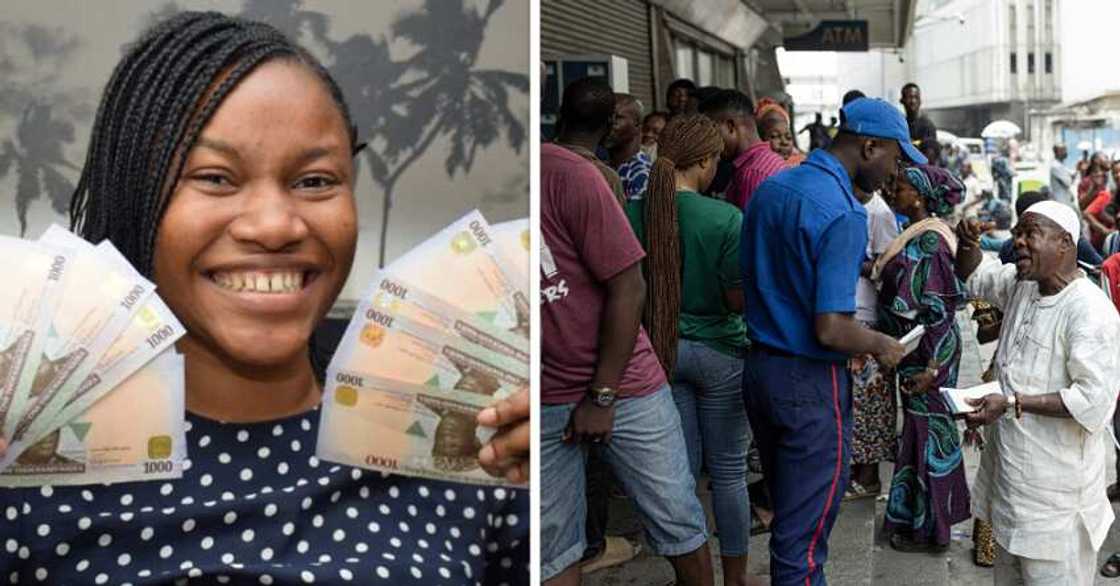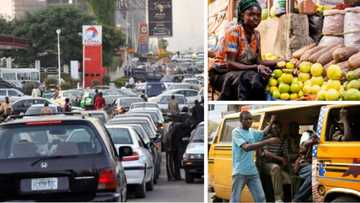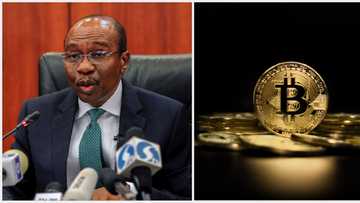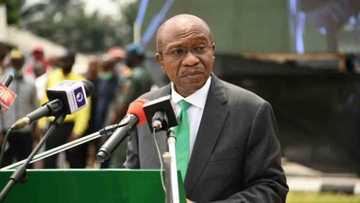Failed Bank: How to Get Back Your Money if Your Bank Suddenly Crashes
- Following the crash of two big banks in the US, depositors are now more concerned about the financial health of their banks
- The NDIC has disclosed that about 45 Nigerian banks failed between 1994 and 2006
- The Nigerian government insures money deposited in any Nigerian bank through the NDIC
Apart from missing money in accounts, one of the greatest fears of bank customers is the closing down of a bank.
Customers of failed banks often ponder the possibility of getting back their money. Even if they are assured of refunds, there exists the question of "how long will it take?"
Recently, two popular banks in the United States that catered mainly to start-ups and the tech industry crashed after depositors hurriedly withdrew their money over fears of the financial health of the banks.

Source: UGC
The crash of Silicon Valley Bank and Signature Bank is said to be the second and third-biggest bank failure in the history of the US.
PAY ATTENTION: Сheck out news that is picked exactly for YOU ➡️ find the “Recommended for you” block on the home page and enjoy!
Since the crash, many bank customers across the world have become more concerned about the financial stability of their banks and what could be the possibility of getting their money in the case of a bank failure.
In this article, Legit.ng discusses bank failures and the role that the NDIC plays in helping depositors get back their money. We would also highlight the steps depositors must take to get back their money in case of a bank failure.
Bank Failures in Nigeria
Nigeria has had its fair share of failed banks, from the colonial era to amalgamation and post-independence. Note that Nigeria's oldest existing bank, First Bank of Nigeria, was founded in 1894, and in that era, a few other banks that failed a few decades later existed.
One of the first recorded bank failures was Nigerian Mercantile Bank Ltd which crashed in the 1930s. It was reported that thousands lost their investments, and some lives were lost to the shock caused by their financial losses.
Recently, the Nigerian Deposit Insurance Corporation (NDIC) disclosed that 45 banks failed between 1994 and 2006.
While some were liquidated or acquired by stronger banks, others had their licenses revoked by the Central Bank of Nigeria.
Why do banks fail?
A bank fails when it cannot meet its financial obligations, including repayment of depositors’ funds, interbank indebtedness, and honouring maturing obligations.
Massive insider loan abuses by senior officials and owners of banks have been identified as one of the primary reasons why banks fail. These persons misuse their positions to engage in self-serving activities.
Other factors responsible for bank failures include weak regulatory and supervisory measures, poor risk asset management, poor corporate governance arrangement, etc.
Here comes the NDIC to the rescue
Every money deposited in a Nigerian bank is insured by the Nigerian government through the NDIC. The regulator is responsible for guaranteeing all bank deposits and then creating a program to help depositors get back their money in times of bank failures.
The Corporation is empowered to provide financial and technical assistance to failing or distressed banks in the interest of depositors.
According to the NDIC Act No 16 of 2006, Deposit Money Banks (DMBs), Micro-finance Banks (MFBs), Primary Mortgage Institutions (PMIs), Payment Service Banks (PSBs), and all deposit-taking financial institutions licensed by the CBN are expected to compulsorily register with the NDIC so that it can intervene in the event of distress.
The deposit insurance system aims to protect depositors and ensure the settlement of insured funds when a financial institution is in distress, thereby aiding the financial system's stability.
How NDIC helps to get back your money
The NDIC operates more or less like an insurer to financial institutions. It reimburses depositors from an Insurance Fund deposited with the CBN or sometimes invested in safe liquid financial instruments like FG bonds and treasury bills.
Also, the NDIC pays out depositors from money gathered from the bank's total customer deposits and from the sale of its assets.
In the event of a failed bank, depositors are expected to file claims to the NDIC. The insurer, on its part, is already aware of the distress in the bank and will be making plans to settle depositors but expects depositors to file claims formally.
To file a claim, download the Depositors Verification Form (CRD VF1) and fill in the required fields:
All completed forms and supporting documents should be sent to the following:
The Director,
Claims Resolution Department,

Read also
"Fuel subsidy is gone": Marketer explains hiked fuel prices after President Tinubu's speech
Nigeria Deposit Insurance Corporation,
Mamman Kontagora House (MKH),
23 A Marina, Lagos
Alternatively, the documents should be scanned and sent to claimscomplaints@ndic.gov.ng
Even though a bank failure isn't a regular occurrence, it doesn't mean it can not happen, even in the most unexpected of times.
Apart from ensuring that your chosen financial institution is NDIC-insured, you must also keep a close watch on its stock price and regular financial reports to know how well it is performing.
Don't save all your money, expert advices
To avert a situation where a bank crashes and savings are being trapped, a Joe Nwamaka, a fixed income trader, speaking with Legit.ng advices bank customers to explore investments rather than savings.
He said:
I often advice people to explore investment options along side saving money in the bank. There are options like shares, bonds, treasury bills and other types of financial assets one can invest in.
NDIC asks depositors of 20 failed banks to come for claims payment
The Nigeria Deposit Insurance Corporation (NDIC) has called on customers of 20 failed banks in Nigeria to come for verification and payment of their deposits that are more than the guaranteed sums known as liquidation dividends.
According to an earlier report by Legit.ng, the Managing Director and Chief Executive Officer of NDIC, Bello Hassan, made the call while delivering a speech at the Corporation’s special day at the 36th Lagos International Trade Fair in December 2022.
Hassan said through the hard work of the Corporation in liquidating the banks. It has realised enough funds to settle all failed bank depositors fully.
Hassan who was represented at the event by a director at the Corporation, stated that notices were issued to creditors of seven Deposit Money Banks currently in liquidation, including depositors and former staff of Eurobank Savings and Loans, Okporo and Okporo MFB and Eurofield MFB.
Source: Legit.ng







